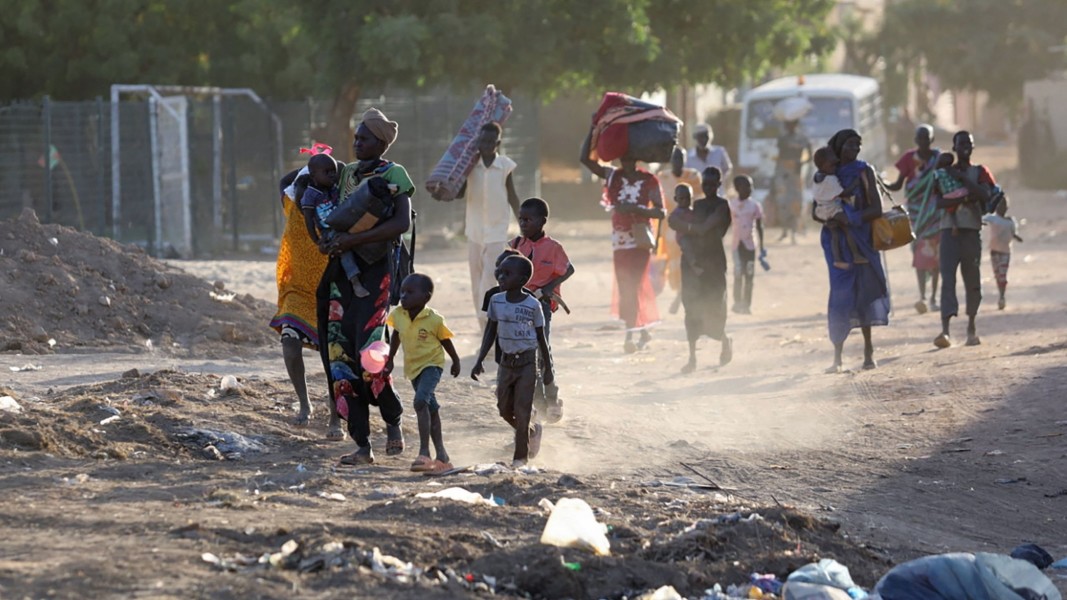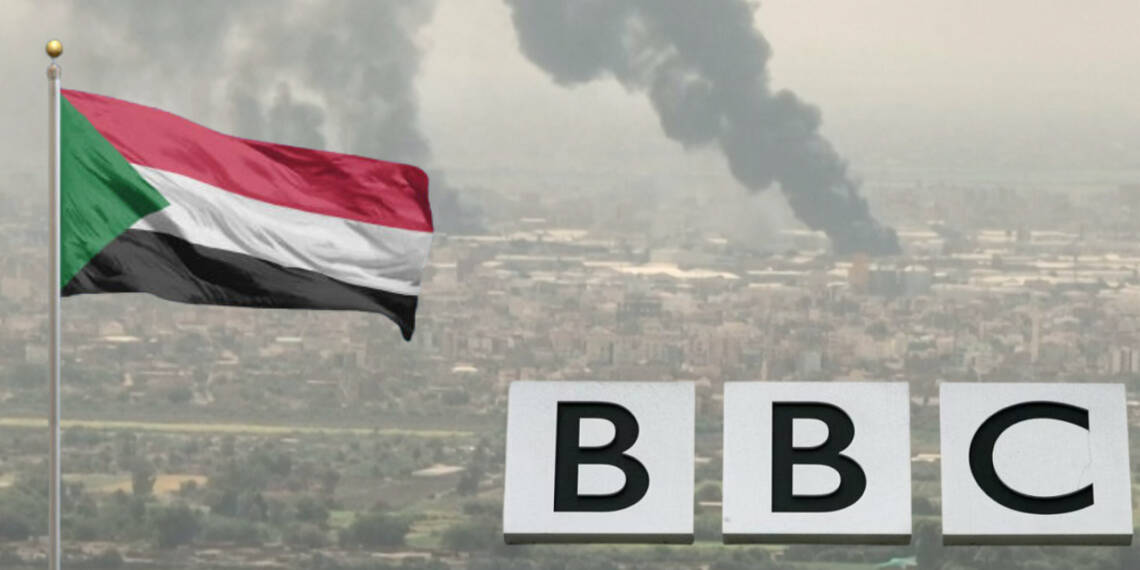BBC emergency pop-up radio service Sudan : Sudan is in a grave crisis. The North African country has been brought to a standstill and its transition to democracy is faltering as the top two Generals in the country struggle for power.
As per WHO 413 people had been killed and 3,551 had been injured in Sudan since the fighting broke out. Moreover, thousands have already fled Sudan and thousand others have been displaced inside Sudan.
As Sudan’s crisis worsens, BBC has arrived in Sudan to make money off of dead bodies.
BBC launches emergency pop-up radio service
As a burgeoning civil war looms large on Sudan, an emergency radio service for Sudan is to be launched on BBC News Arabic, by the World Service.
The BBC emergency pop-up radio service Sudan will be broadcast twice daily for three months. It aims to provide news and information for people in the war-torn African nation.
Further, it will also include eyewitness accounts and news on diplomatic efforts. The BBC said, it will help counter disinformation too.

As per a BBC report, the Sudan BBC emergency pop-up radio service programme will be broadcast live from London, with input and analysis from teams in Amman in Jordan and the Egyptian capital Cairo.
Liliane Landor, director of the World Service, said “BBC Arabic’s Emergency pop-up Radio Service for Sudan will bring vital live updates of the situation on the ground and inform listeners of life-saving resources” as citizens seek clear, independent information and advice.
The BBC has said that it will be available on shortwave radio in Sudan, as well as online, where listeners will be able to hear information on how to access essential supplies and services.
Read More: Ethiopia kicks out BBC for running a cross border propaganda machinery
So far so good. However, let’s not forget these are only what the BBC says it plans to do in Sudan. But, if we look at how BBC has been at the centre of a few controversies in Africa for its role in peddling fake news, its plans in Sudan now at a time of crisis is bound to get questioned as well.
BBC has a history of getting suspended or kicked out of Africa. To start with, BBC Arabic Radio was suspended in North Sudan way back in 2010. The government cited violations by the broadcaster such as smuggling in satellite equipment as the reason for suspending the Media outlet.
Recently, Ethiopia too expelled BBC for peddling propaganda. As many as 15 media organizations, including the BBC and the Voice of America (VOA), got expelled by Ethiopian authorities from its Somali region for operating without the required licenses.
The BBC operation near Somali borders was suspended on the accusations that they are publishing misleading reports and fuelling the crisis.
Read More: US was orchestrating a TPLF-style another movement in Ethiopia, Abiy Ahmed killed it in its crib
Many other countries in Africa like Burundi, Rwanda, Cameroon and even the DRC have taken action against the BBC for spreading propaganda that creates more instability in the continent.

Thus, now as Sudan finds itself in a critical state with its transition to democracy looking like a distant dream, the BBC launching an emergency pop-up radio service may end up doing more harm than good for the already troubled country.
No matter what the BBC proposes to do, its actions have, in the past attracted the wrath of many African countries for its alleged role in spreading propaganda and fuelling crisis.
Perhaps, this is not what Sudan needs right now and the African nation must be cautious enough to avert more troubles.
https://www.youtube.com/watch?v=07xfrlpk1oI








